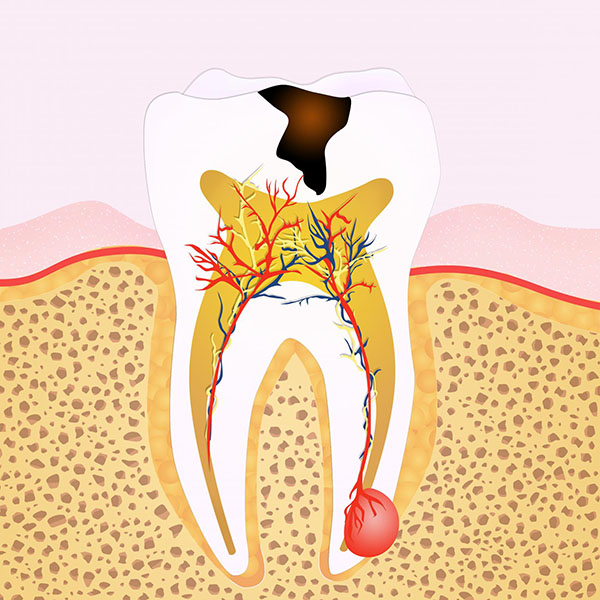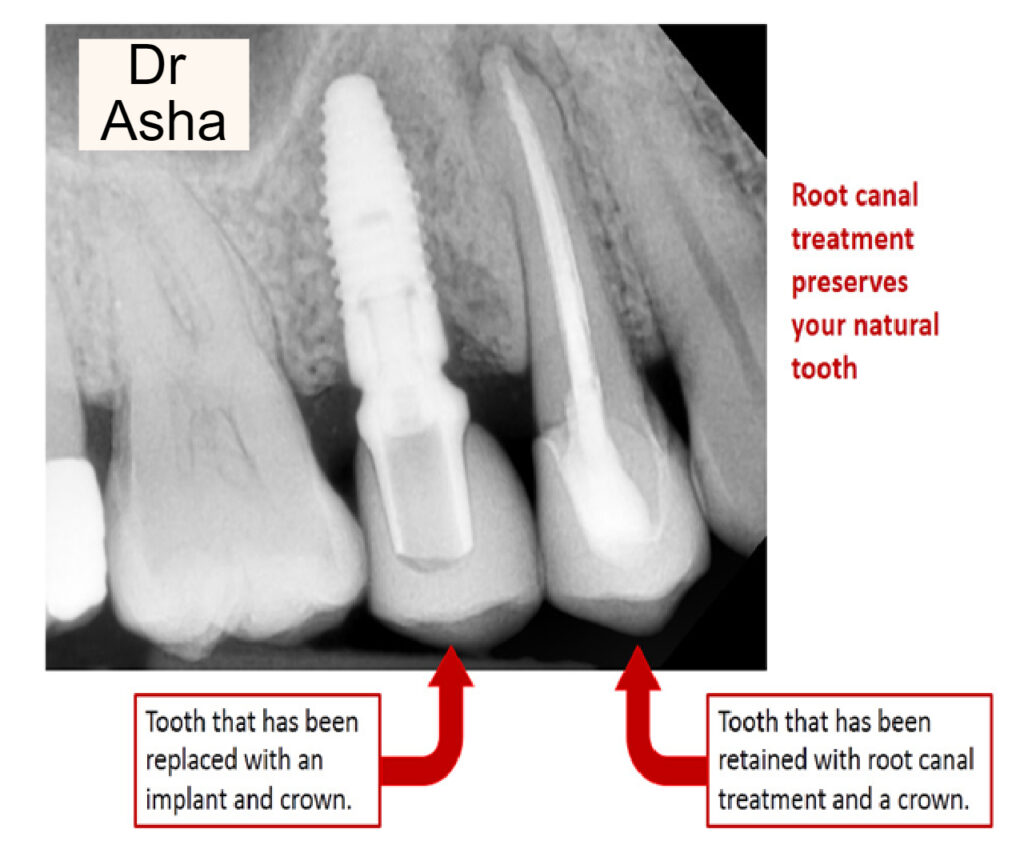Root Canal Treatment
Root Canal Treatment is often the only option to retain a badly decayed or damaged tooth.
If root canal treatment is not done, the tooth will eventually need to be removed.
What is root canal treatment?
In the center of the tooth is the pulp — commonly referred to as the nerve. The pulp extends from the center of the tooth down to the tips of the roots through tiny channels called canals. Hence the name, root canal treatment. In situations where the tooth is infected or painful, the pulp is removed from the center of the tooth. By removing the damaged pulp, the pain and infection can be removed so that you can retain the tooth.
There are many situations when root canal treatment may be recommended e.g.
a) Badly decayed tooth
b) Tooth that has been injured in a fall or other accident
c) A cracked tooth
d) Occasionally, it may need to be done together with gum treatment.
e) Sometimes it may be electively done prior to reshaping the tooth with a crown.
Of course, much depends on the extent of the damage, the condition of the bone and gums around the tooth and other factors such as the position or usefulness of the tooth. If a large portion of the tooth has been damaged, or if the tooth is cracked, even root canal treatment may not be able to salvage the tooth

Is root canal treatment painful?

What happens in root canal treatment?
What do I need to do after root canal treatment?
After root canal treatment is done, you will need to complete the restoration of your tooth with at least a large filling or, more often, a crown placed on your tooth. In some cases where the tooth has been extensively damaged, a post with core has to be placed to act as a foundation for the crown. A crown wraps the whole tooth to prevent further breakage of the tooth. Until this is done the restoration of your tooth is not complete.
There are cases where once the pain is resolved with root canal treatment, the patient does not move on to complete the treatment with a crown. Eventually, the weakened tooth succumbs to stress and chips or breaks until the tooth is no longer salvageable. The broken tooth would then need to be removed. This is a waste of the investment made in root canal treatment.
How much does root canal treatment cost?
How do I know whether I need root canal treatment?
Determining whether you need root canal treatment depends much on your symptoms and the condition you present with. X-rays will be needed to make a diagnosis. Sometimes, in the early stages of a cracked tooth or if the symptoms are vague or sporadic, the dentist may advise you to wait and see if the problem resolves on its own or with other supportive treatment.
The recommendation for root canal treatment is made if there is a good chance that the tooth can be successfully restored to function.
After root canal treatment, will the tooth last forever?
You still need to clean the tooth well because just like any natural tooth it can still succumb to tooth decay or gum disease. The tooth could also crack vertically if it is subjected to heavy forces. In the vast majority of cases, a root canal treated tooth can last for many years.
What are the options to having root canal treatment?

